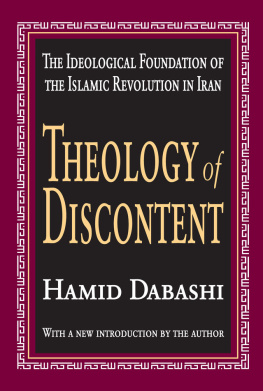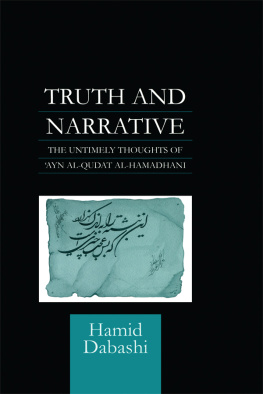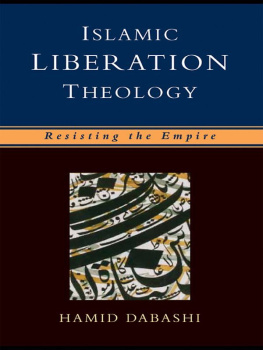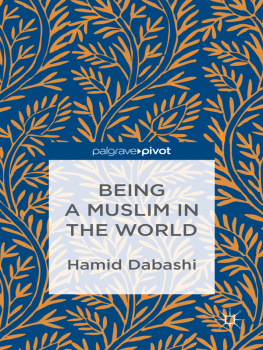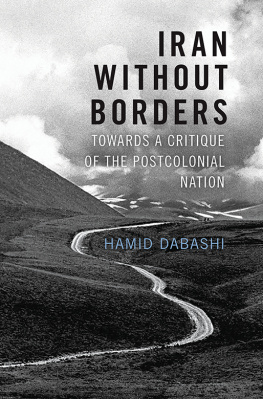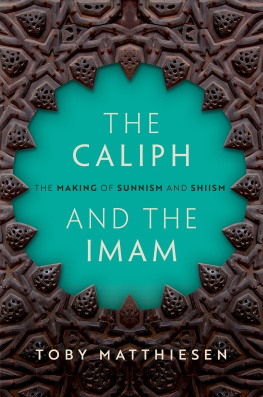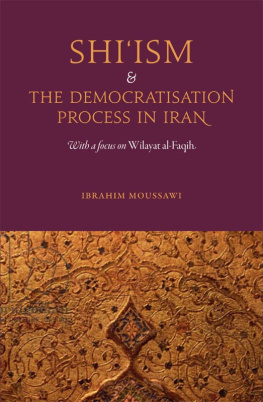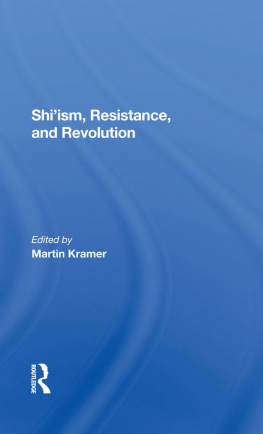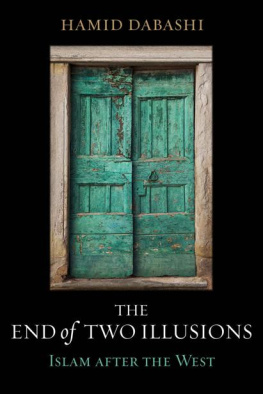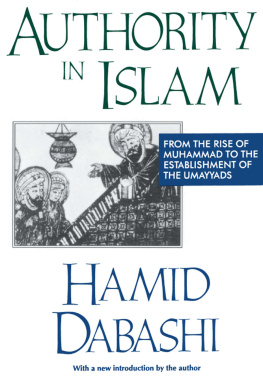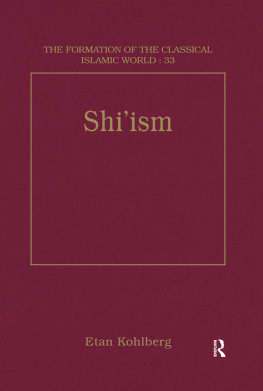SHIISM
SHl'lSM
A Religion of Protest
Hamid Dabashi
The Belknap Press of Harvard University Press Cambridge, Massachusetts London, England 2011
Copyright 2011 by the President and Fellows of Harvard College All rights reserved
Printed in the United States of America
Library of Congress Cataloging-in-Publication Data Dabashi, Hamid
Shiism : a religion of protest / Hamid Dabashi. p. cm.
Includes bibliographical references and index.
ISBN 978-0-674-04945-1 (alk. paper)
1. ShiahHistory. 2. ShiahDoctrinesHistory. I. Title.
BP192.D33 2010 297.8'209dc22 2010038963
For and from the serenity of my inner sanctum: my wife Golbarg
and my children Kaveh, Pardis, Chelgis, and Golchin (and of course for Bashu and Dazzle: our little strangers)
Shokr-e Izad keh beh eqbal-e kolah-gusheh-ye gol Nekhvat-e bad-e dey-o showkat khar akher shod
Praised be the Lord that thanks to the blossoming tip of the roses hat The arrogance of winter and the might of the thorn are ended at last
Hafez
CONTENTS
IV
contemporary contestations
| The Un/Making of a Politics of Despair | |
| Toward a New Syncretic Cosmopolitanism | |
| Contemporary Sites of Contestation | |
Conclusion | |
Note on Transliteration | |
Arabic and Persian Glossary | |
Schools of Theology, Philosophy, and Political Thought | |
Chronology | |
Notes | |
Further Reading | |
Acknowledgments | |
Index | |
Maps and illustrations follow p. 227
It is a little remarkable, that... an autobiographical impulse should twice in my life have taken possession of me, in addressing the public... The truth seems to be, however, that when he casts his leaves forth upon the wind, the author addresses, not the many who will fling aside his volume, or never take it up, but the few who will understand him better than most of his schoolmates or lifemates... To this extent and within these limits, an author, methinks, may be autobiographical, without violating either the readers rights or his own.
Nathaniel Hawthorne, The Custom House: Introductory to The Scarlet Letter, 1850
Shiism is a festive gathering, a festival, a feast, a constellation of moral manners, a commitment, a conviction, a mobile memorythe centerpiece of it the iconic unsheathing of a dagger, for real, for sure, always half-drawn from its worn-out sheath. Always ready to change its own metaphors, Shiism is also a raised lantern of hope in desperation, a green flag, a red marker of martyrdom, sacrifice, renewal, resurrection. Shiism is the shimmering memory of an event, a dream, a single traumatic incident, condemned forever to try to remember itself: in vain. Shiism is the doomed damnation of thinking one has seen and had a vision and then trying for a lifetime, a history, the span of a cosmic universe to remember it, to realize itall in futility. Shiism is the Islamic version of the myth of Sisyphuscondemned to roll the fiction of its own reality up the hill, against the grain of history, then watch it hopelessly roll down to the ground zero of its cyclical desperation for salvation. Shiism is crimson in color for its ritual remembrance of the coldblooded murder of the Prophets grandson, Hossein ibn Ali; green in its memory of the providential assurances that all will one day be well, the mayhem of the world be damned; white, full of blank determination to wear the shroud of shahadat [to bear witness with your life] just before descending to deathinto nullity, nonentity, just before rising up again to be a witness, to bear witness (again), thus to account for who and what you were, we are, we ought to be, for what we did right, what we did wrong, whether we were righteous or not. Shiism is a blind faith, a reasoned reassurance, a moral mandate, an intellectual tapestry, a way of (not) resting your case with history, the world; it is the mean
ingful magic that holds your passing days together, your whispering nights full of saintly silences and replete with suggestive gestures of revolt. Shiism is a religion of mothers hopes, bloodied by fathers vengeance, paid for by sons and daughters of a meaningful death. Shiism speaks Persian, prays in Arabic, whispers in Urdu, sings in Turkish, plays in mimetic remembrances of things pastperpetually la recherche du temps perdu.
Shiism is a religion of protest, born and bred on the backbone of a combative historya history gone (for Shiis) awry. A prophet is born, a messenger is sent, the messenger comes and the messenger goes, the divinity reveals itself, a community is dutifully formed, a faith is declared triumphant, and a belief (a doctrine) takes shape that does not want to let go of the charismatic memory, the ecstatic moment, the embracing persona of the Prophetso it invests it in another man, a good man, a blessed man, a divinely ordained man to lead His community. But history does not concur, the community does not follow, the majority (the minority thinks) errs. Shiism, in believing that Ali ibn Abi Talib should have succeeded Prophet Muhammad ibn Abdullah, takes what has happened in history as the erring side of reality. The time for the Shiis is thus always out of joint. And cursed spite that ever they were born to set it right.
Shiism is a poem, an elegy, a eulogy, an epic, a panegyric pausing for a moment for history to recollect itself and start anew. Shiism is Karbala. In a battle that took place on the 10th of October 680 (10 Muhar-ram 61 on the Islamic calendar), the Prophets grandson Imam Hossein and seventy-two of his closest comrades and companions were murdered by the reigning Muslim caliph Yazid ibn Muawiyah. How did that happen? Muslims killing Muslimsso early in what was now an Islamic history? And killing whomthe Prophets own flesh and blood? Predicated on that tragedy, Shiism is the summoned metaphysics of sustainable belief, a suspension of doubtabsolute and final surrender to one overarching truth [Haq ]in peace. As the letter of the law dictates and matters of metaphysics prevail (whence reason resigns and a suprememotherlyserenity of surrender prevails), Shiism is the undying belief in the Absolute Unity and the Absolute otherness of one Almighty GodOmnipotent, Omniscient, Omnipresent, Merciful, Compassionate, Forgiving.
This God for the Shiis has an essence [dhat] and countless attributes [sifat]. One of His attributes is wisdom, another justice. Shiis (as all other Muslims) believe that this Almighty Providence, in His infinite wisdom and justice, has sent periodic emissariesfrom Adam through Noah, Abraham, Moses, and Jesus, down to the Last and Most Noble of them all (their Seal) Prophet Muhammadso that mankind can be led to the Right Path. And yet (and there is the Shii rub), the death of the last Prophet, Shiis believe (unlike all other Muslims, and with that belief they part ways with their Sunni brothers and sisters), left the prophetic seal vacant. Thus with His cousin and son-in-law, Ali ibn Abi Talib, began the cycle of Twelve (or Five or Seven according to other Shiis) infallible imams, or leaders, who have brought the prophetic cycle to a culminating conclusion. These imams are in possession of the true meaning of the Quran, having learned it, chest to chest [sineh beh sineh], from one heart to another, from the Prophet Muhammad himself. Justice [Adl] and an equally abiding belief in bodily resurrection in the Final Day of Judgment [Maad] are as definitive to Shii doctrinal beliefs as are the belief in the Absolute Unity of God (their monotheistic Tawhid) and belief in His Divine Providence to send his emissaries to guide people to do the right things (their epistolary Nubuwwah )and the fact that these prophets have in turn left behind infallible interpreters of their revelations (their sacerdotal Imamah).
Next page

